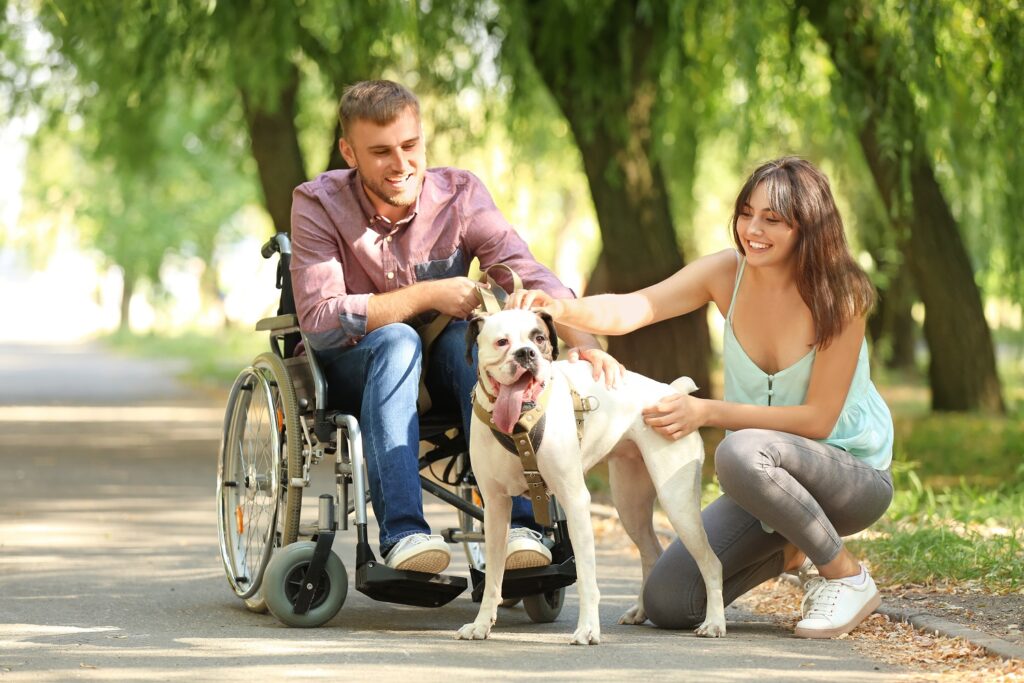The idea that someone living with a disability cannot care for others is a myth rooted in outdated and ableist thinking. In truth, can a Disabled Person Be a caregive? People have always been caregivers to their children, partners, elderly parents, communities, and even as professionals. So, the question is not can they, but why do we keep assuming they can’t?

Caregiving is not only about lifting heavy objects or being available 24/7. Rather, it’s about presence, patience, emotional intelligence, problem-solving, and love. Many of these qualities are deeply familiar to people with disabilities, who navigate complex systems, advocate for their own needs, and often support others along the way.
At Guide2Care, we advocate for a broader, more human definition of caregiving that centers on interdependence. Because, to us, care is not just a role, it’s a relationship.
Redefining What Caregiving Looks Like
Caregiving is often framed in narrow terms: bathing, feeding, dressing, or doing physically strenuous tasks. However, caregiving includes so much more:
- Coordinating appointments
- Providing emotional support
- Helping with medications or paperwork
- Being a consistent companion and advocate
Indeed, disabled people, whether they live with chronic illness, mobility issues, mental health conditions, or neurodivergence, can and do provide all of the above. They bring lived empathy and resilience to their caregiving, shaped by personal experience.
Interdependence Over Independence
Western societies often place too much value on independence and self-reliance. Yet, in truth, humans are interdependent. We rely on each other, and strength doesn’t always look like doing it all alone.
Some caregivers with disabilities may need assistance themselves, and that’s fine. After all, mutual care is powerful: one person may help with mobility, another with communication; one may cook, the other may handle emotional regulation. In fact, this dynamic doesn’t diminish care; instead, it deepens it.

Real-Life Examples
- A person with chronic fatigue syndrome provides nighttime support for their elderly parents while managing their own energy wisely.
- A wheelchair user helping a friend with memory loss keep track of medications and appointments.
- A neurodivergent adult raising a child with special needs, building a home rooted in understanding.
These are not rare exceptions, they’re everyday examples that challenge traditional ideas of who is allowed to care.
Barriers and Discrimination Still Exist
Unfortunately, many systems like home care agencies or benefits programs still exclude disabled people from being paid caregivers or receiving appropriate support to do so. These, however, are policy problems, not ability problems.
Disabled caregivers may face:
- Ineligibility for stipends or support services
- Bias from medical professionals or social workers
- Lack of accessible caregiving equipment
Therefore, changing these policies is part of building a more just and inclusive care economy.
The Bottom Line
Can a Disabled Person Be a caregive? Yes, they already are. It’s time the systems and narratives around care caught up with that reality.

By recognizing and supporting the contributions of disabled caregivers, we expand our definition of care and build a culture that values:
- Interdependence
- Flexibility
- Human dignity
At Guide2Care, we envision a world where:
- All caregiving relationships are seen as valid whether mutual, solo, or supported
- Systems evolve to honor lived experience and embodied knowledge
- Care is no longer judged by old standards, but rooted in human connection
Because, ultimately, care isn’t about perfection it’s about presence.
FAQs – Can a Disabled Person Be a Caregiver?
Q1: Can a Disabled Person Be a Caregive professionally?
Yes, but they may face systemic barriers. With inclusive policies, they can thrive in caregiving roles.
Q2: What skills are most valuable in a caregiver?
Patience, empathy, organization, emotional intelligence, and reliability, many of which disabled people possess naturally.
Q3: What caregiving tasks don’t require physical strength?
Providing companionship, organizing medical schedules, offering emotional support, and advocacy are all crucial caregiving roles.
Call to Action (CTA)
Support caregiving without bias.
Join us at Guide2Care to uplift disabled caregivers and build a more inclusive care culture. 👉 Visit Guide2Care.org

